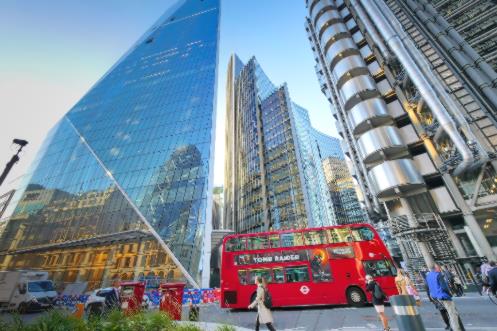The Makeup of the UK: How It Makes Money and Future Outlook
As of 2017, the United Kingdom had a population of 66 million and a gross domestic product (GDP) of approximately 2.6 trillion dollars. That puts the UK as number five in the largest economies around the world.
Bear in mind that the UK has a bit of an edge seeing as it includes England, Wales, Scotland and Northern Ireland, not just a single country making up those impressive figures.
How Do Things Look for the UK?
In terms of an overview, the UK is well regarded as a safe environment for businesses to operate. Many European companies have local operations in the UK to take advantage of the size of the economy.
For a fairly small island with a land mass that's not expansive for the population, the number of sectors covered is impressive. There's considerable diversification within industries and sectors, from centres of manufacturing in the Midlands, to farming, a busy construction industry, tourism, financial services, online casinos, and many digital-oriented businesses too.
How Does It Breakdown by Sector?
The UK Office for National Statistics tallies up information on the UK economy as a whole. According to the ONS, services is what brings home the bacon. One way or another, services accounts for at least three quarters of the recorded GDP.
Services is a broad category in itself; however, it does break down further by industry too. For instance, business and financial services is a large chunk of it within the City of London and elsewhere (it's fast growing too), however, there's a substantial food and drinks sector, and retail is still significant, including expanding use of e-commerce.
General production capabilities and manufacturing comprises roughly 21 percent of the GDP. This part of the economy has been on the up of late with 2.5% growth in 2017 following a stagnant two years prior. Agriculture is a small part of the overall economy at around 0.6 percent only.
Construction is a cyclical industry to be sure with many peaks and troughs. However, it grew by a robust 7.1 percent in 2017, which is impressive and a real standout.
Also, the tourism industry is a regular contributor to the UK economy. In 2017, foreign travellers spent £2.45Bn ($31.76Bn) within the UK which doesn't count travel inside the UK by ordinary residents too.
Brexit – A Looming Cloud
The looming cloud of Britain exiting the European Union (Brexit) has caused the economy to slow somewhat. The ill-fated June 2016 determination to leave Europe following a public vote on the matter has cost UK coffers at least £440m ($584m) to date.
GDP estimates that were expected to be a sluggish 1.75 percent nominal growth have been marked down to 1.5 percent annually by the IMF for 2018-2019. The outcome of Brexit negotiations in Europe, which keep stalling, are still uncertain. It may even go to another British public vote if a deal with Europe is either not easily attained or the terms are unacceptable.
Regardless of Brexit, the UK economy continues to show its strength across many trading markets. Once the Brexit matter is resolved, faster growth is likely to resume once again.

